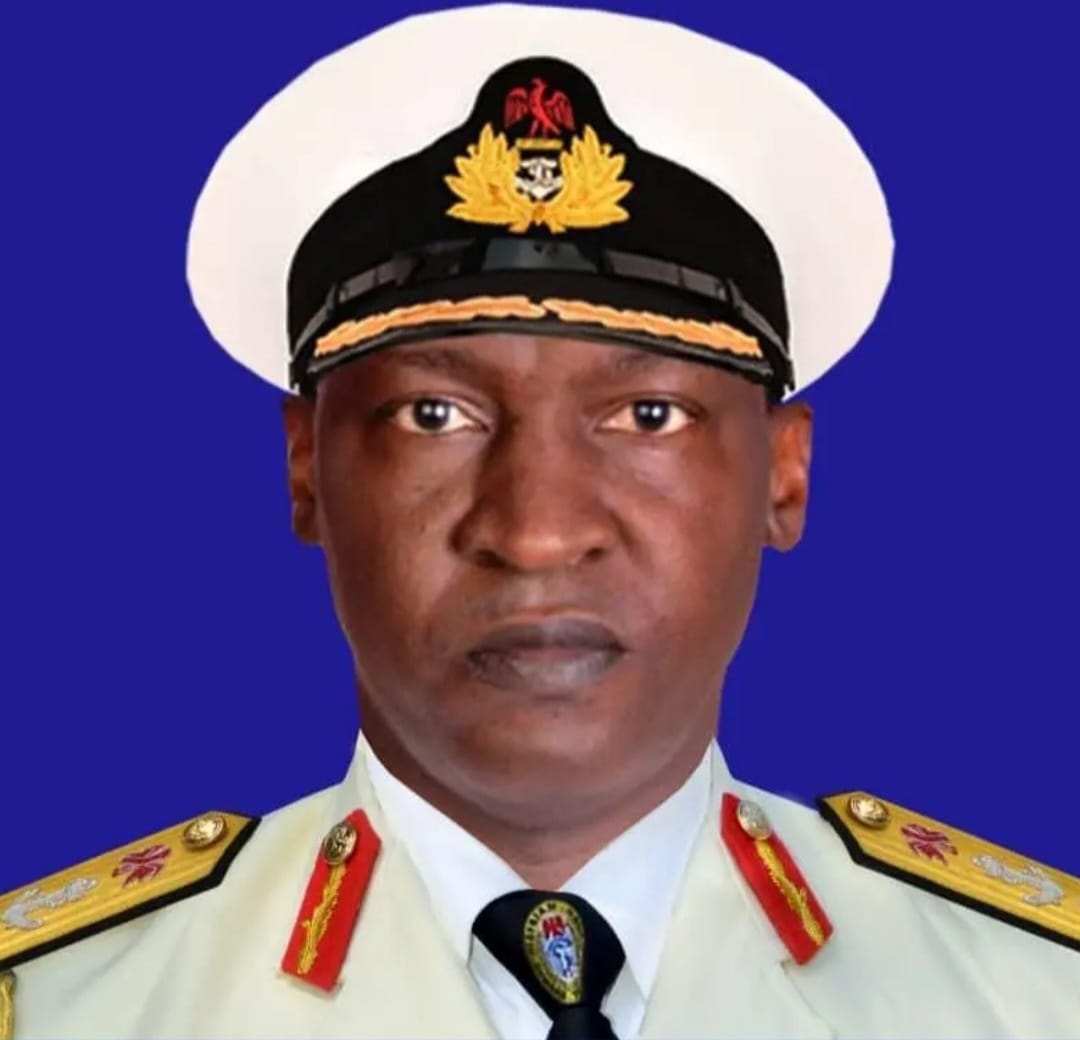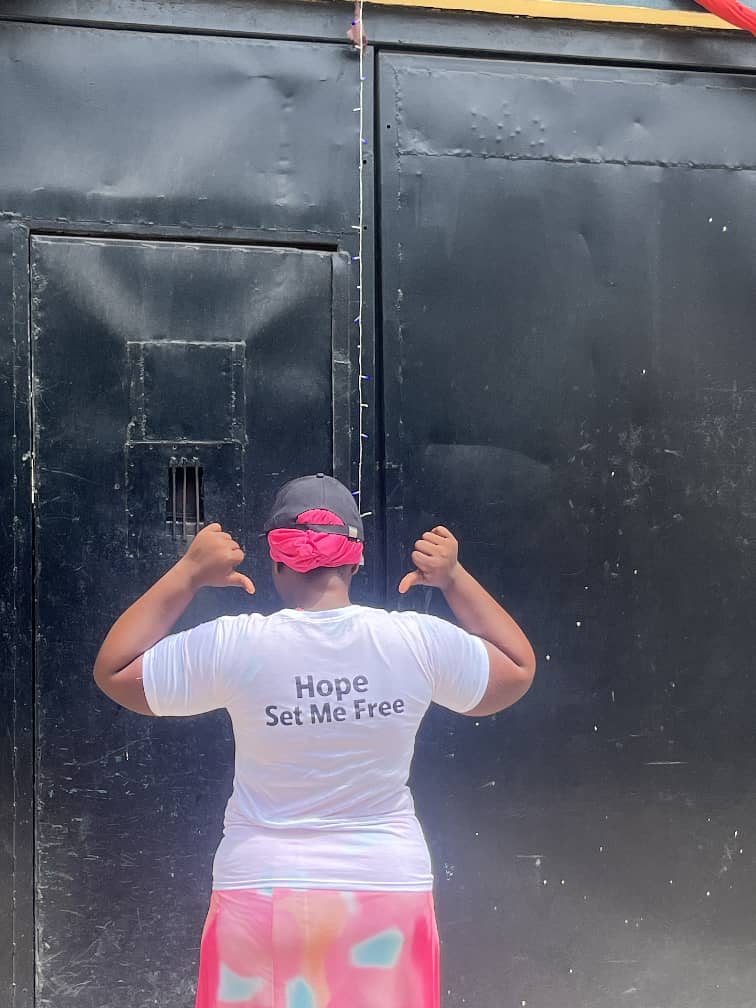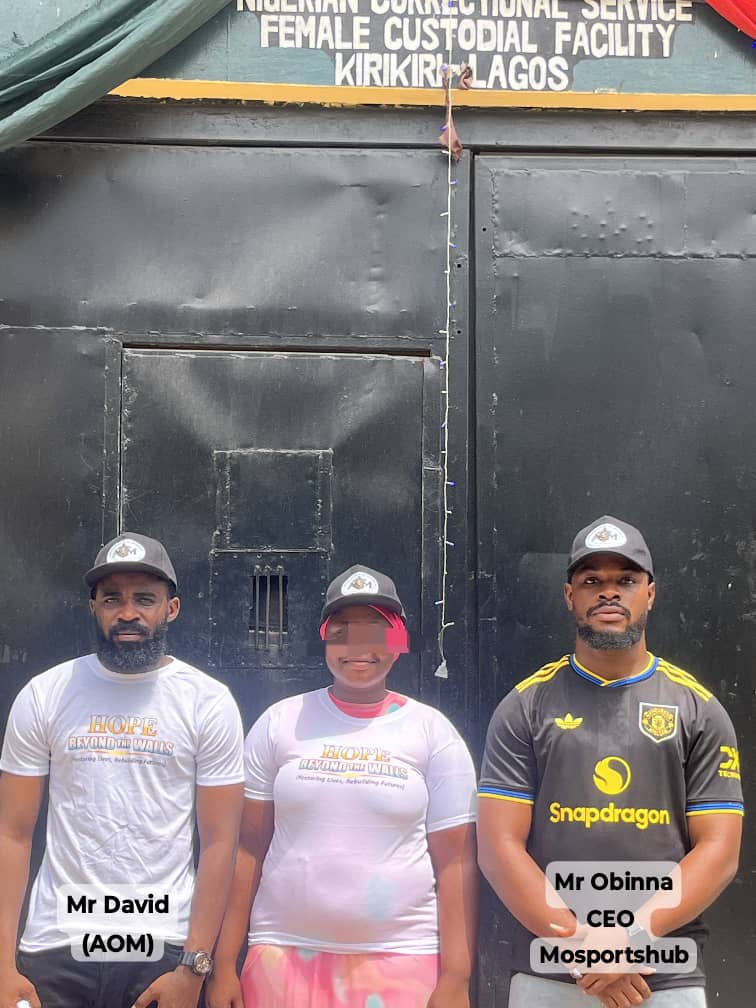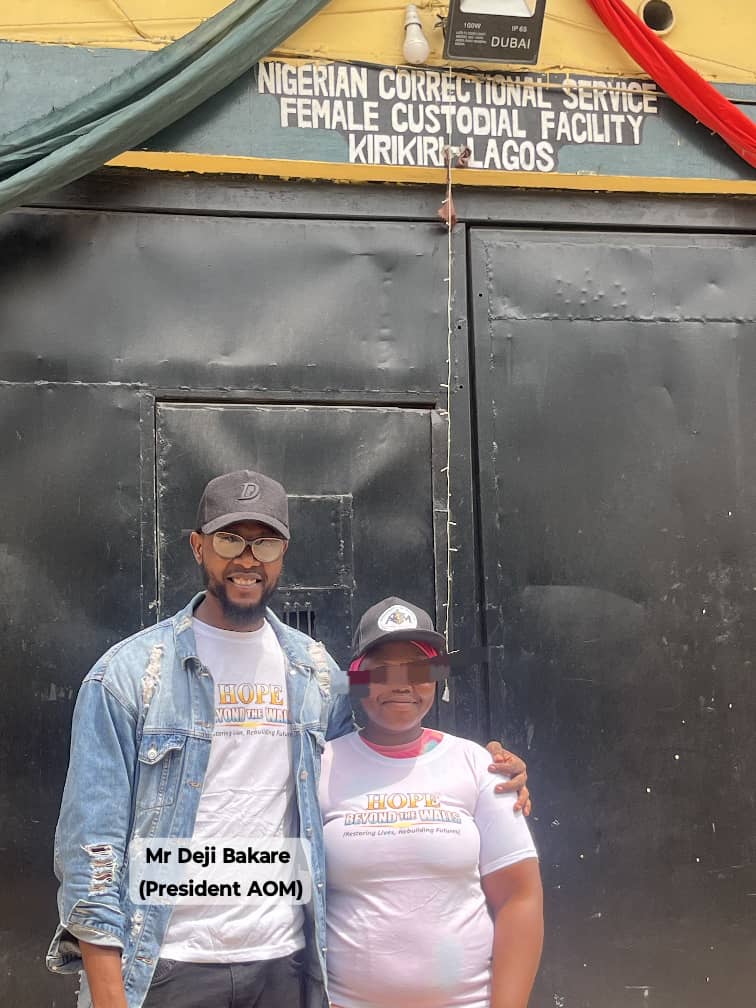society
Bisbam CEO, Abisola Bamidele, Bags Owu Chieftaincy Title … Becomes Erelu Borokini Of Owu Kuta

Bisbam CEO, Abisola Bamidele, Bags Owu Chieftaincy Title … Becomes Erelu Borokini Of Owu Kuta
Sahara Weekly Reports That On Friday, December 1, 2023, His Royal Highness, Oba Hameed Adekunle Oyelude Makama, CON, Tegbosun III, will install Mrs Abisola Bamidele as first Erelu Borokoni of Owu, Kuta.
All roads lead to Kuta, which promises to be a high society event laced with tradition.
To ensure that the chieftaincy ceremony is given a touch of class and panache, Mrs Bamidele fondly called Lady BisBam by her admirers, who have put all the finishing touches to make it a memorable day.
Abisola Bamidele, a visionary and an accomplished female entrepreneur and philanthropist, was born on 4th of July, 1970 in Epe, Lagos.
Lady BisBam, as she’s popularly known, from an early age, her curiosity and determination set her on a path of innovation and social impact. Her advocacy for preservation of culture and tradition had fueled her brand as “Alaga Iyawo” (Traditional Wedding MC) for over thirty years and still counting, she’s known and recognized home and abroad for excellence and her height of exposure even as “Alaga Iyawo”.
She stands as a luminary in her field. She has raised and still building brands (people) in her own capacity.
After records of accomplishment and success as Alaga Iyawo, Abisola Bamidele embarked on her entrepreneurial journey. Well over ten years now, she founded BISBAM GLOBAL VENTURES (BisBam Place), a groundbreaking venture that stands as a testament to her dedication, offering a one stop sanctuary for Aso Oke, Aso Ebi, and resplendent traditional bridal ensembles. Complementing this, her brainchild “Arewa Jewellery Shop” adorns individuals with the finest pieces, celebrating the heritage of Nigerian culture. Her ability to identify market trends and adapt to evolving industries quickly propelled the company to success.
Known for her leadership acumen, Abisola Bamidele served as a role model for aspiring entrepreneurs, especially women in business. She became an advocate and a pioneer of an online Family Building Forum called HOME BUILDERS, which has close to 80,000 members. Driven by a desire to mend fractured families, this thriving community now unites nearly 80,000 members across the world, serving as a testament to its impact on the lives it touches.
Not content with personal success, Lady Bisbam established the “Alaga Academy,” popular called “THE RISING STARS.” This esteemed institution imparts invaluable mentorship and guidance to budding talents, serving on the Board of Trustees and acting as Matron. This organization nurtures emerging talents, fostering a legacy of empowerment, producing over 150 accomplished graduates. These graduates are now well established and are doing exploits in their respective areas.
Her dedication to supporting women facing cancer is a cornerstone of her philanthropic efforts. Through her work with numerous government agencies and not for profit organizations, Lady Bisbam has provided crucial resources, emotional support, and advocacy for women navigating the challenges of cancer.
In addition to her entrepreneurial endeavours and philanthropic initiatives, Lady Bisbam demonstrated a profound commitment to fostering spiritual and communal well-being. Recognizing the importance of faith and community, she dedicated herself to singlehandedly constructed two places of worship, a church and a mosque in two distinct communities. The impact of Abisola Bamidele’s generosity and vision for spiritual spaces transcended the physical structures themselves. Both places of worship became catalysts for community engagement, fostering connections, and promoting a sense of belonging among diverse groups.
Her commitment to constructing places of worship underscored [Entrepreneur’s Name]’s holistic approach to philanthropy, emphasizing the importance of addressing spiritual and communal needs alongside economic and social challenges. Through these endeavours, she left an enduring legacy of compassion, unity, and a deep respect for the diverse fabric of communities she touched.
Her achievements have not gone unnoticed. With over 100+ national and international awards to her name, Lady Bisbam is a true exemplar of excellence. In her leadership roles, be it as Chairperson of the Wonderful Women Foundation Network, or her integral position in Wauve Foundation, Nigeria, she has made significant strides in advancing causes dear to her heart.
As a matron of the Gleam Foundation (The Renewed Tribe Foundation) for the Less Privileged, she has been instrumental in providing support and opportunities for those in need. Her work in this area revolves around providing quality education for less privilege. Her advocacy work with African Women Cancer Awareness USA has been a beacon of hope for many.
In addition to her business achievements, Abisola Bamidele earned recognition for her philanthropic efforts. Awards and honors, such as OUTSTANDING FEMALE ROLE MODEL OF THE YEAR 2022 (Nigerian Outstanding Leadership Award Platform), City People Awards – FEMALE ACHIEVERS AWARD 2023 to mention but a few, highlighted her dedication to creating positive change beyond profit margins.
Lady Bisbam’s online presence is nothing short of a digital phenomenon. With over half a million dedicated followers across various social media platforms, her influence resonates far and wide. This vast community is a testament to the depth of connection she cultivates through her work and advocacy. It’s not just a number; it’s a thriving network of individuals inspired by her message and leadership. Through these platforms, Lady Bisbam continues to amplify her mission, reaching hearts and minds with her empowering vision for a stronger, culturally enriched Nigeria.
In Lady Bisbam’s remarkable journey, we witness a fusion of grace, unwavering commitment, and boundless resilience towards her community. Her story is a tapestry woven with threads of cultural preservation, education, and the nurturing of a close-knit community. Lady Bisbam stands as a guiding light of leadership, with a steadfast dedication to uplifting Nigerian women and preserving their cherished heritage.
society
Tinubu Mourns Rear Admiral Musa Katagum: A National Loss for Nigeria’s Military Leadership

Tinubu Mourns Rear Admiral Musa Katagum: A National Loss for Nigeria’s Military Leadership
By George Omagbemi Sylvester | Published by SaharaWeeklyNG
“President Tinubu Pays Tribute as Nigeria’s Naval Command Mourns the Sudden Loss of a Strategic Maritime Leader at a Critical Security Juncture.”
Abuja, Nigeria – President Bola Ahmed Tinubu has officially mourned the death of Rear Admiral Musa Bello Katagum, the Chief of Naval Operations of the Nigerian Navy, who died on February 19, 2026, after a protracted illness while receiving treatment abroad. His passing has sent ripples through Nigeria’s defence establishment and national security architecture, marking the loss of one of the most experienced and respected maritime commanders in recent memory.
In a statement released on February 20, 2026 by his Special Adviser on Information and Strategy, Bayo Onanuga, President Tinubu described Rear Admiral Katagum’s death as a “significant blow to the military and the nation,” noting the late officer’s vast experience and “invaluable contributions” to both the Nigerian Navy and the broader “Armed Forces of Nigeria”. The President extended heartfelt condolences to the bereaved family, naval personnel and the nation at large, while praying for solace and strength for colleagues and loved ones.
Rear Admiral Katagum’s career was marked by distinguished service in several strategic capacities. Before his appointment as Chief of Naval Operations in November 2025, he served as Director of the Presidential Communication, Command and Control Centre (PC4) and Chief of Intelligence of the Nigerian Navy-roles that placed him at the nexus of naval operational planning and intelligence gathering. His leadership was widely credited with enhancing the Navy’s capacity to respond to growing maritime threats in the Gulf of Guinea, including piracy, illegal bunkering, and transnational crime.
Security policy experts emphasise that Katagum’s loss comes at a critical juncture for Nigeria. Dr. Adebola Akinpelu, a defence analyst at the Institute for Security Studies, observes that “Nigeria’s maritime domain remains a frontline in the broader security challenges facing the nation; the loss of an adept operational leader like Rear Admiral Katagum is not just a personnel change but a strategic setback.” His insight reflects broader concerns about continuity in military leadership amid intensifying threats.
The Nigerian Navy’s own statement, confirmed by the Directorate of Naval Information, affirmed that Katagum’s “exemplary leadership, strategic insight, and unwavering loyalty” were central to boosting operational readiness and national defence. According to Captain Abiodun Folorunsho, the Director of Naval Information, “His legacy remains a source of inspiration across the services.”
As Nigeria grapples with complex security landscapes at its land and maritime frontiers, the death of Rear Admiral Katagum underscores a broader national imperative: strengthening institutional capacities while honouring the service and sacrifice of those who defend the nation’s sovereignty. In the words of military scholar Professor James Okoye, “Leadership in security institutions is not easily replaceable; it is built through experience, trust and strategic clarity; qualities that Katagum embodied.”
Rear Admiral Musa Katagum has since been laid to rest in accordance with Islamic rites, leaving behind a legacy that will inform Nigerian naval operations for years to come.
society
Viral “Chat With God” Claim Targeting Kenyan Prophet David Owuor Proven False

Viral “Chat With God” Claim Targeting Kenyan Prophet David Owuor Proven False
By George Omagbemi Sylvester, SaharaWeeklyNG
“Viral screenshot sparks national controversy as the Ministry of Repentance and Holiness dismisses fabricated “divine” WhatsApp exchange, raising urgent questions about faith, digital misinformation, and religious accountability in Kenya.”
A sensational social media claim that Kenyan evangelist Prophet Dr. David Owuor displayed a WhatsApp conversation between himself and God has been definitively debunked as misinformation, sparking national debate over digital misinformation, religious authority and faith-based claims in Kenya.
On February 18–19, 2026, an image purporting to show a WhatsApp exchange between a deity and Prophet Owuor circulated widely on Twitter, Facebook, WhatsApp groups and TikTok. The screenshot, allegedly shared during one of his sermons, was interpreted by many as illustrating unprecedented direct communication with the divine delivered through a mainstream messaging platform; a claim that, if true, would have broken new ground in how religious revelation is understood in contemporary society.
However, this narrative quickly unraveled. Owuor’s Ministry of Repentance and Holiness issued an unequivocal public statement calling the image “fabricated, baseless and malicious,” emphasizing that he has never communicated with God through WhatsApp and has not displayed any such digital conversation to congregants. The ministry urged the public and believers to disregard and stop sharing the image.
Independent analysis of the screenshot further undermined its credibility: timestamps in the image were internally inconsistent and the so-called exchange contained chronological impossibilities; clear indicators of digital fabrication rather than an authentic conversation.
This hoax coincides with rising scrutiny of Owuor’s ministry. Earlier in February 2026, national broadcaster TV47 aired an investigative report titled “Divine or Deceptive”, which examined alleged “miracle healing” claims associated with Owuor’s crusades, including assertions of curing HIV and other chronic illnesses. Portions of that investigation suggested some medical documentation linked to followers’ health outcomes were fraudulent or misleading, intensifying debate over the intersection of faith and public health.
Credible faith leaders have weighed in on the broader context. Elias Otieno, chairperson of the National Council of Churches of Kenya (NCCK), recently urged that “no religious leader should replace God or undermine medicine,” affirming a widely accepted Christian understanding that divine healing does not supplant established medical practice. He warned against unverified miracle claims that may endanger lives if believers forego medical treatment.
Renowned communications scholar Professor Pippa Norris has noted that in digital societies, “religious authority is increasingly contested in the public sphere,” and misinformation (intentional or accidental) can quickly erode trust in both religious and secular institutions. Such dynamics underscore the importance of rigorous fact-checking and responsible communication, especially when claims intersect profoundly with personal belief and public well-being.
In sum, the viral WhatsApp chat narrative was not a revelation from the divine but a striking example of how misinformation can exploit reverence for religious figures. Owuor’s swift repudiation of the false claim and broader commentary from established church bodies, underline the ongoing challenge of balancing deeply personal faith experiences with the evidence-based scrutiny necessary in a digitally connected world.
society
HOPE BEYOND THE WALLS 2026: ASSOCIATION OF MODELS SUCCESSFULLY SECURES RELEASE OF AN INMATE, CALLS FOR CONTINUED SUPPORT

HOPE BEYOND THE WALLS 2026: ASSOCIATION OF MODELS SUCCESSFULLY SECURES RELEASE OF AN INMATE, CALLS FOR CONTINUED SUPPORT
The Association of Models (AOMNGO) proudly announces the successful completion of the first edition of Hope Beyond the Walls 2026, a humanitarian initiative dedicated to restoring hope and freedom to deserving inmates.
Despite enormous challenges, financial pressure, emotional strain, and operational stress, the organization remained committed to its mission. Through perseverance, faith, and collective support, one inmate has successfully regained freedom a powerful reminder that hope is stronger than circumstance.
This milestone did not come easily.
Behind the scenes were weeks of coordination, advocacy, fundraising, documentation, and intense engagement. There were moments of uncertainty, but the determination to give someone a second chance kept the vision alive.
Today, the Association of Models gives heartfelt appreciation to all partners and sponsors, both locally and internationally, who stood with us mentally, financially, morally, and physically.
Special Recognition and Appreciation To:
Correctional Service Zonal Headquarters Zone A Ikoyi
Esan Dele
Ololade Bakare
Ify
Kweme
Taiwo & Kehinde Solagbade
Segun
Mr David Olayiwola
Mr David Alabi
PPF Zion International
OlasGlam International
Razor
Mr Obinna
Mr Dele Bakare (VOB International)
Tawio Bakare
Kehinde Bakare
Hannah Bakare
Mrs Doyin Adeyemi
Shade Daniel
Mr Seyi United States
Toxan Global Enterprises Prison
Adeleke Otejo
Favour
Yetty Mama
Loko Tobi Jeannette
MOSES OLUWATOSIN OKIKIADE
Moses Okikiade
(Provenience Enterprise)
We also acknowledge the numerous businesses and private supporters whose names may not be individually mentioned but whose contributions were instrumental in achieving this success.
Your generosity made freedom possible.
A CALL TO ACTION
Hope Beyond the Walls is not a one-time event. It is a movement.
There are still many deserving inmates waiting for a second chance individuals who simply need financial assistance, legal support, and advocacy to reunite with their families and rebuild their lives.
The Association of Models is therefore calling on:
Corporate organizations
Local and international sponsors
Philanthropists
Faith-based organizations
Community leaders
Individuals with a heart for impact
to partner with us.
Our vision is clear:
To secure the release of inmates regularly monthly, quarterly, or during special intervention periods through structured support and transparent collaboration.
HOW TO SUPPORT
Interested partners and supporters can reach out via
Social Media: Official Handles Hope In Motion
Donations and sponsorship inquiries are welcome.
Together, we can turn difficult stories into testimonies of restoration.
ABOUT AOMNGO
The Association of Models (AOMNGO) is a humanitarian driven organization committed to advocacy, empowerment, and social impact. Through projects like Hope Beyond the Walls, the organization works tirelessly to restore dignity and create opportunities for individuals seeking a second chance.
“When we come together, walls fall and hope rises.”
For media interviews, partnerships, and sponsorship discussions, please contact the Association of Models directly.
-

 celebrity radar - gossips6 months ago
celebrity radar - gossips6 months agoWhy Babangida’s Hilltop Home Became Nigeria’s Political “Mecca”
-

 society6 months ago
society6 months agoPower is a Loan, Not a Possession: The Sacred Duty of Planting People
-

 society5 months ago
society5 months agoReligion: Africa’s Oldest Weapon of Enslavement and the Forgotten Truth
-

 news6 months ago
news6 months agoTHE APPOINTMENT OF WASIU AYINDE BY THE FEDERAL GOVERNMENT AS AN AMBASSADOR SOUNDS EMBARRASSING






